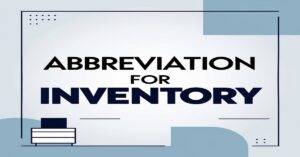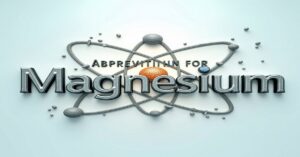Let’s face it, the world of texting slang can feel like deciphering a secret code. One moment you’re trying to figure out if “LOL” still means “laugh out loud” (spoiler: it does, but not always), and the next, you’re hit with “OOP.” So, what’s the deal with this mysterious three-letter phrase? If you’ve ever seen it pop up in a text, tweet, or TikTok comment and scratched your head, you’re in the right place.
By the end of this article, you’ll not only know what OOP means but also how to use it like a pro—or at least like someone who knows what’s going on in Gen Z’s digital playground.
What Does OOP Mean? (The Basics You Need to Know)
OOP, in the context of texting and internet slang, is a versatile little acronym. At its core, it’s an expression of surprise, acknowledgment, or apology. Think of it as a casual verbal shrug, often accompanied by a sheepish grin. It’s like saying, “Oops,” but with extra flavor—and sometimes, less actual regret.
Imagine you’re walking down the street, engrossed in your phone (no judgment, we all do it), and you accidentally bump into someone. Instead of a formal apology, you mutter, “Oop!” under your breath. That’s the vibe.
The Many Shades of OOP (It’s Not Just One Thing)
OOP can adapt to almost any situation, making it the Swiss Army knife of slang. Let’s break it down:
1. Surprise!
When something unexpected happens, OOP comes to the rescue. Picture this:
You’re scrolling Instagram and see your ex’s new partner, who looks oddly familiar. You squint and realize they were in your high school chemistry class. Cue the mental gasp: “Oop.”
2. Acknowledgment
Sometimes, OOP is a polite way of saying, “I hear you” or “Fair enough.” It’s subtle, non-confrontational, and perfect for awkward moments.
Friend: “I’m pretty sure pineapple belongs on pizza.”You: “Oop.” (Translation: “I’ll let you have this one, but I’m judging internally.”)
3. Apology Lite
When a full “I’m sorry” feels like overkill, OOP steps in to smooth things over.
You accidentally interrupt someone during a conversation: “Oop, sorry, go ahead.”
Where Did OOP Come From? (A Brief History Lesson)
The origins of OOP are a bit hazy, but it’s widely associated with drag culture and the iconic Jasmine Masters, a star from RuPaul’s Drag Race. In her viral 2015 video, she exclaimed, “And OOP!” mid-story, perfectly capturing the essence of surprise and self-awareness. The phrase took off, spreading like wildfire across social media platforms and embedding itself in everyday lingo.
Real-Life Scenarios Featuring OOP
Let’s bring OOP to life with some relatable examples:
- The Coffee Spill: You’re at a café, juggling your laptop, phone, and overpriced latte. Inevitably, the latte ends up on your shirt. Your reaction? “Oop.”
- The Accidental Like: You’re deep-stalking someone’s Instagram from 2013 and accidentally like a post. Cue the panicked un-like and a whispered, “Oop.”
- The Overshare: A friend casually mentions their bizarre dream involving a talking cat and a road trip to Mars. Your response? “Oop, that’s… interesting.”
Common Questions About OOP
Is OOP the same as “Oops”?
Not exactly. While they’re similar, OOP has a broader, more playful range. It’s less about literal mistakes and more about reacting to life’s unexpected twists.
Can I use OOP in professional settings?
Let’s not get carried away. Imagine emailing your boss: “Oop, forgot to attach the report.” It’s probably best to save this gem for casual conversations.
What if I overuse it?
Don’t worry—OOP is meant to be light and fun. If you’re using it every other sentence, though, it might lose its charm. Balance is key.
Fun Ways to Use OOP in Your Texts
If you’re ready to embrace OOP, here are some creative ways to sprinkle it into your messages:
- Reacting to Drama: “Did you hear what happened at the party? Oop, spill the tea!”
- Playful Teasing: “Oop, someone’s feeling confident today!”
- Lighthearted Self-Deprecation: “Just ate an entire pizza by myself. Oop.”
When OOP Means Something Else Entirely
Here’s a plot twist: OOP isn’t just slang. In the tech world, it stands for “object-oriented programming.” But don’t worry—we’re not diving into coding tutorials here. Just know that if you’re talking to a software developer and they mention OOP, they’re not referencing your Instagram mishap.
Why OOP Is More Than Just a Word
OOP isn’t just about what you say—it’s about how you say it. It captures a moment, a feeling, and sometimes even an entire story in just three letters. It’s the verbal equivalent of a raised eyebrow, a knowing smile, or a quick laugh. In a world where brevity is king, OOP reigns supreme.
Your Turn: How Do You Use OOP?
Now that you’re an OOP expert, it’s time to put your skills to the test. Have you used OOP before, or is this your first time hearing about it? Share your funniest OOP moments in the comments—we’d love to hear them! And remember, the next time life throws you a curveball, just channel your inner Jasmine Masters and say, “Oop!”
FAQs About OOP
What does OOP stand for in slang?
In texting and internet slang, OOP is a casual expression of surprise, acknowledgment, or apology. It’s like a versatile verbal shrug.
How do I use OOP in a sentence?
You can use OOP to react to surprising or awkward situations. For example: “Oop, didn’t mean to interrupt!” or “Oop, that’s unexpected!”
Can OOP be used for serious situations?
Not really. OOP is meant to be lighthearted and fun, so it’s best suited for casual conversations and playful interactions.
Is OOP still popular?
Absolutely! OOP continues to thrive in social media and texting culture, especially among younger generations.
Where did OOP originate?
OOP gained popularity from Jasmine Masters, a drag queen who used the phrase “And OOP!” in a viral video. It’s also rooted in drag culture and has since spread widely.
Can I overuse OOP?
While OOP is fun, using it too frequently might make it lose its charm. It’s best to sprinkle it into conversations rather than relying on it constantly.
Does OOP have any other meanings?
Yes, in the tech world, OOP stands for “object-oriented programming,” a programming paradigm based on objects. But in casual slang, it’s all about fun reactions.

Tony James is a passionate wordsmith and the creative force behind Winky Hive. With a knack for uncovering the stories behind slang and weaving emotions into poetry, Tony brings a unique voice to every piece he writes. A lifelong lover of language, he thrives on exploring how words evolve, connect, and inspire.
When he’s not penning articles or crafting verses, Tony enjoys diving into cultural trends, reading classic poetry, and discovering hidden gems in modern expressions. His mission? To make Winky Hive a haven for those who love the art of language in all its vibrant forms.









